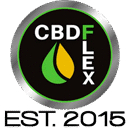Does CBD Help with Anxiety? Unpacking the Potential of Cannabidiol
Anxiety. It’s a word that resonates with so many of us. Whether it’s the occasional flutter of nerves before a big presentation or…
Anxiety. It’s a word that resonates with so many of us. Whether it’s the occasional flutter of nerves before a big presentation or a persistent feeling of unease that impacts daily life, anxiety is a common human experience. In recent years, as interest in natural wellness solutions has grown, one compound has consistently entered the conversation: CBD, or cannabidiol. But the big question remains: Does CBD help with anxiety?
This blog post will delve deep into the relationship between CBD and anxiety, exploring what the science says, how it might work, and important considerations if you’re thinking of trying it.
Understanding Anxiety: More Than Just Feeling Worried
Before we dive into CBD, it’s crucial to understand what anxiety actually is. It’s more than just feeling worried; it’s a complex interplay of physical, emotional, and behavioral symptoms. Excessive and persistent worry characterizes anxiety disorders and can interfere with daily activities. Some common types of anxiety disorders include:
- Generalized Anxiety Disorder (GAD): Persistent and excessive worry about various things.
- Social Anxiety Disorder: Intense fear of social situations and scrutiny by others.
- Panic Disorder: Recurrent unexpected panic attacks, characterized by sudden intense fear.
- Post-Traumatic Stress Disorder (PTSD): Anxiety and flashbacks following a traumatic event.
- Obsessive-Compulsive Disorder (OCD): Characterized by intrusive thoughts and repetitive behaviors.
Traditional treatments for anxiety often involve therapy, medication, or a combination of both. However, some individuals seek alternative or complementary approaches, which is where CBD comes into the picture.
What is CBD and How Does it Interact with Our Bodies?
CBD is one of over a hundred cannabinoids found in the cannabis plant. Unlike its more famous cousin, THC (tetrahydrocannabinol), CBD is non-psychoactive, meaning it won’t make you feel “high.”
The way CBD interacts with our bodies is through the endocannabinoid system (ECS). This complex network of receptors, enzymes, and endocannabinoids plays a crucial role in regulating various bodily functions, including mood, sleep, pain, stress, and yes, anxiety.
Researchers are still studying the exact mechanisms, and they believe that CBD doesn’t directly bind to the main cannabinoid receptors (CB1 and CB2). Instead, it may influence them indirectly, potentially by:
- Inhibiting the breakdown of endocannabinoids: This could lead to higher levels of naturally produced cannabinoids in the body, promoting balance.
- Interacting with other receptors: CBD may interact with receptors involved in regulating anxiety, such as serotonin receptors (specifically the 5-HT1A receptor), which plays a role in mood and anxiety.
- Reducing inflammation: Chronic inflammation has been linked to various mental health conditions, including anxiety. CBD’s anti-inflammatory properties might contribute to its potential benefits.
The Science Behind “Does CBD Help with Anxiety?”
So, what does the scientific evidence say about CBD help with anxiety? While researchers need more large-scale, long-term human studies, several preclinical and clinical studies have shown promising results:
- Studies on Social Anxiety: Several studies have investigated CBD’s effects on social anxiety disorder. For example, a 2011 study published in Neuropsychopharmacology found that CBD significantly reduced anxiety, cognitive impairment, and discomfort in participants with social anxiety disorder during a simulated public speaking task.
- Research on Generalized Anxiety Disorder: Research suggests that CBD may have a calming effect on the central nervous system, potentially benefiting individuals with GAD.
- Potential for Panic Disorder and PTSD: Some preliminary research indicates that CBD might help reduce the frequency and intensity of panic attacks and alleviate some symptoms of PTSD, such as nightmares and anxiety.
- Animal Studies: Numerous animal studies have demonstrated CBD’s anxiolytic (anxiety-reducing) effects in various models of anxiety.
It’s important to note that the research is still evolving, and findings can vary depending on the specific anxiety disorder, dosage, and individual differences. However, the existing evidence suggests that CBD holds potential as a therapeutic tool for managing anxiety symptoms.
How to Use CBD for Anxiety: Important Considerations
If you’re considering using CBD to help with anxiety, here are some crucial factors to keep in mind:
- Consult Your Doctor: Before starting any new supplement, especially if you have underlying health conditions or are taking other medications, it’s essential to talk to your doctor. They can provide personalized advice and help you understand potential interactions.
- Start with a Low Dose: It’s generally recommended to start with a low dose of CBD and gradually increase it until you find what works best for you. Dosage can vary significantly depending on individual factors and the severity of your anxiety.
- Choose the Right Product: CBD comes in various forms, including oils, tinctures, capsules, edibles, and topicals. For anxiety, oils and tinctures taken sublingually (under the tongue) are often preferred for their faster absorption.
- Look for Quality Products: The CBD market is still largely unregulated, so it’s crucial to choose products such as cbd roll on for pain from reputable companies that provide third-party lab testing to verify the CBD content and ensure the absence of contaminants.
- Be Patient: It may take some time to experience the full effects of CBD. Be consistent with your usage and monitor how you feel over time.
- Understand Potential Side Effects: While generally well-tolerated, CBD can sometimes cause mild side effects such as drowsiness, dry mouth, or changes in appetite. These are usually temporary and subside with continued use or dosage adjustment.
CBD is Not a Cure, But a Potential Tool
It’s crucial to understand that while research is promising, CBD is not a cure for anxiety disorders. You should view it as a potential tool that you can use as part of a comprehensive approach to managing anxiety, which may also include therapy, lifestyle changes, and other medications that your doctor prescribes.
Conclusion: Exploring the Potential of CBD for Anxiety Relief
The question “Does CBD help with anxiety?” is one that continues to generate significant interest and research. While researchers need to conduct more robust human studies, existing evidence suggests that CBD can alleviate anxiety symptoms through its interaction with the endocannabinoid system and other receptors in the brain.
If you’re struggling with anxiety and are considering exploring CBD as a potential option, remember to do your research, consult with your doctor, and choose high-quality products. While not a magic bullet, CBD may offer a natural and well-tolerated way to find some relief and improve your overall well-being.
FAQ:

Will CBD make me feel high?
No, CBD is non-psychoactive and will not produce the “high” associated with THC.
Is CBD legal?
The legality of CBD varies depending on the source (hemp-derived vs. marijuana-derived) and the specific laws of your location. It’s essential to check your local regulations.
What is the best way to take CBD for anxiety?
Oils and tinctures taken sublingually are often preferred for faster absorption, but other forms like capsules and edibles are also available.
Are there any risks associated with taking CBD?
While generally well-tolerated, some people may experience mild side effects like drowsiness, dry mouth, or changes in appetite. It’s important to consult your doctor, especially if you’re taking other medications.
How much CBD should I take for anxiety?
There is no one-size-fits-all dosage. It’s recommended to start with a low dose and gradually increase it until you find what works best for you.







